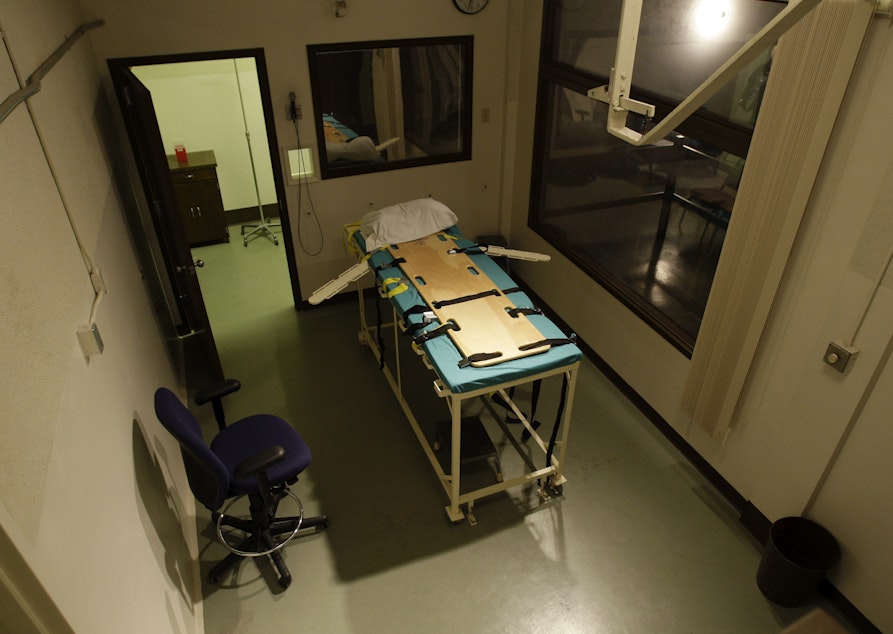Last Rights: Ethics Of The Death Penalty In Washington State

Since 1976, 1,413 people have been executed in the United States. That number rose steadily through 1999, when 98 people were executed. Last year, 35 people were put to death.
Can there be justice in the imposition of capital punishment? Humanities Washington hosted a deeper discussion of issues surrounding the death penalty at The Royal Room in Columbia City on May 27, 2015.
In a study published in 2014, University of Washington professor Katherine Beckett found that “jurors in Washington are three times more likely to recommend a death sentence for a black defendant than for a white defendant in a similar case.”
Soon after the study was published, Washington Gov. Jay Inslee announced that he would not carry out any death penalty sentence, but instead issue a reprieve in all capital cases brought before him. Inslee justified his decision this way:
"Equal justice under the law is the state's primary responsibility. And in death penalty cases, I'm not convinced equal justice is being served. The use of the death penalty in this state is unequally applied, sometimes dependent on the budget of the county where the crime occurred."
Sponsored
Inslee also referred to doubts that the death penalty was a deterrent and to his hope that his decision would prompt a deeper discussion of capital punishment in the state.
The Humanities Washington Think & Drink event was moderated by KUOW’s Ross Reynolds. Featured guests were Dorothy Van Soest, a writer and former dean at the University of Washington, and David E. Smith, an instructor for the Osher Lifelong Learning Institute at the University of Washington.
Thanks to Anna Tatistcheff for our recording and to TVW for the audio from Gov. Inslee.
Correction 9/16/15: A previous version incorrectly stated David E. Smith’s title. He is an instructor for the Osher Lifelong Learning Institute at the University of Washington.

